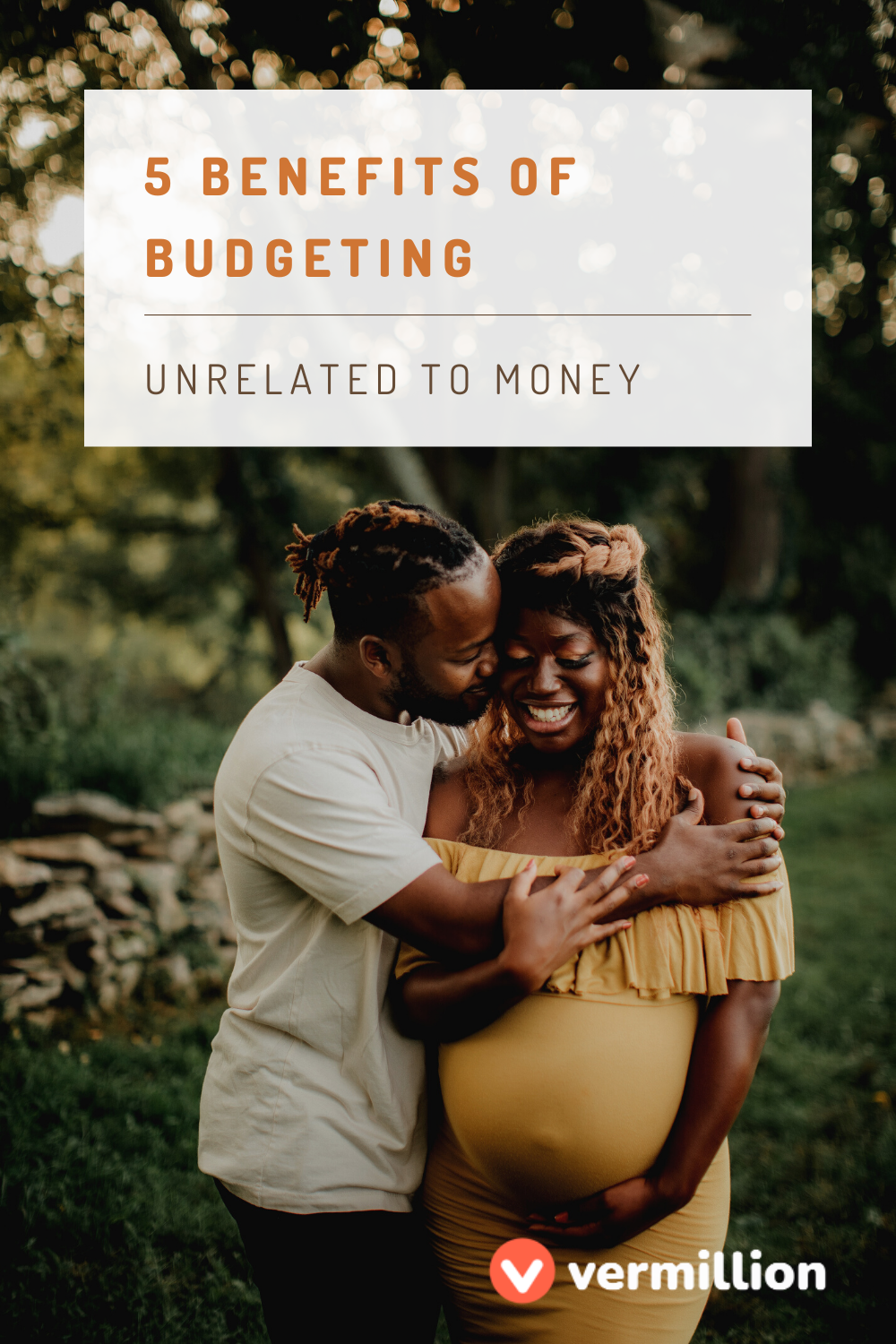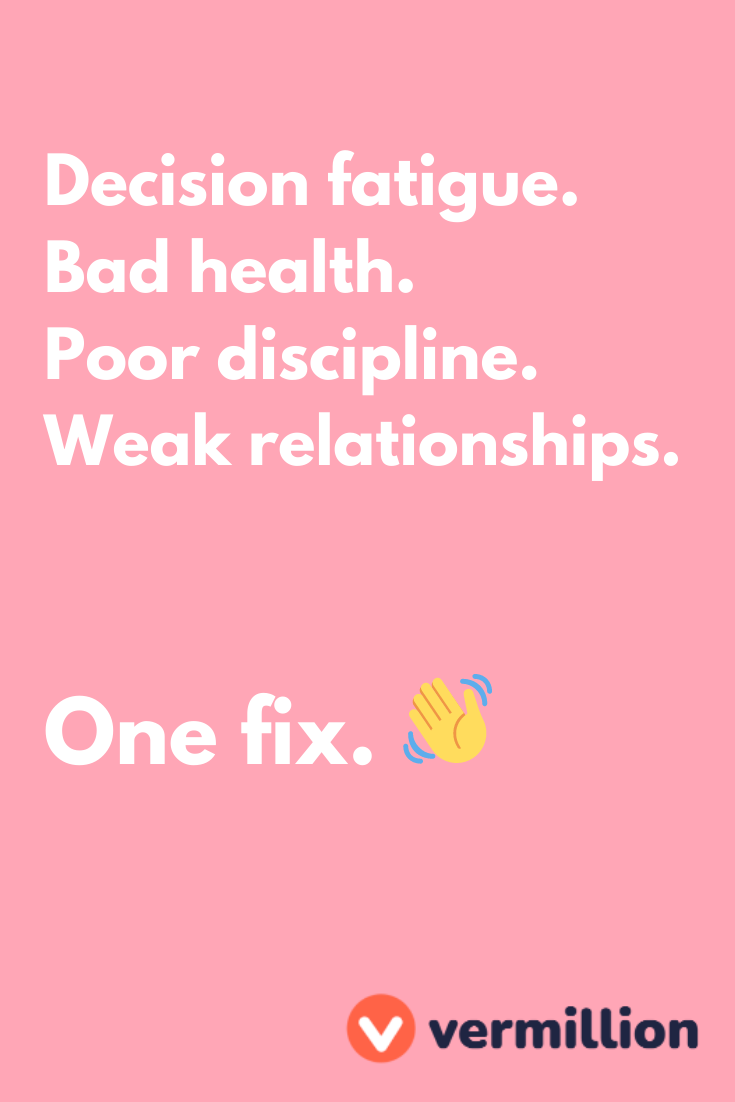5 Benefits of Budgeting That Have Nothing To Do With Money


We’re fortunate to earn money when you click on links to products or services we already know and love. This helps support the blog and allows us to continue to release free content. Read our full disclosure here.
If you’ve read any of our other blog posts, you may have gleaned some of the benefits of keeping a budget…
- Gain awareness of your spending patterns
- Afford more of what you love
- Align your spending with your values
- Save more for what matters
But there are plenty of benefits that have absolutely nothing to do with money!
Okay, that’s a lie. Everything has to do with money. Have you met me? Hello, I’m Rebecca and I’m obsessed with money.
But in case money isn’t enough for you, here are five benefits of budgeting that aren’t strictly financial.
1. Better Health
A 2018 survey revealed that 85% of people are stressed about money – for some, finances were a constant stressor.
These are often folks without savings, emergency funds, or buffers to cover unexpected expenses.
If you’ve never felt the emotional security of an emergency fund – I highly recommend it. It's the best feeling money can buy.
Lower stress is strongly associated with better health, both physically and emotionally. And since budgeting can take the suspense and pain out of money management, it’s not surprising that your health can experience a positive ripple effect!
The ability to plan ahead also means more time and money for higher quality food – an unquestionably strong choice for better health. By consciously thinking about where you put your dollars, you may choose to cook at home rather than eating at restaurants (a popular budget staple). This is cheaper, healthier, and less time consuming when you plan ahead!
2. More Freedom
Ever wanted something you couldn’t afford?
Of course you have.
A nice vacation, better school supplies, a sweet new gadget – even quitting your job. These are all things that become possible when you stick to a budget!
The last thing you want to worry about while you’re on vacation is money. Do the legwork ahead of time and you’ll be prepared to cover your expenses guilt-free!
How To Save Up For Large Expenses
Just remember the old addage: You can afford anything, just not everything. When you make the conscious decision to prioritize your extra dollars, you start operating your finances on a higher level.
You’re not just working with the money you have today. You’re working with the full force of your future earnings. Just don’t forget to follow up your careful planning with action!
3. Less Decision Fatigue
The research has been out for a while now, but we’ve all felt it: After a long day of making choices and decisions, we’re exhausted.
We just want to come home and relax, not plan and strategize and think.
This is decision fatigue and it can lead to nasty side-effects like avoidance, impulse purchases, and an inability to exercise self-control or think critically about trade-offs.
It can happen when you’re using lots of willpower throughout the day to navigate different choices – soup or salad? elevator or stairs? It can also happen when you’re making one choice among a bevy of options – should I choose red, or yellow, or green, or blue, or…
Studies show that we're actually happier choosing from a limited range of options. Budgeting helps by forcing you to make these decisions ahead of time. Instead of running through a thousand questions to determine the best choice, you can narrow it down to just two:
- Can I afford it? (AKA Is it in my budget?)
- Is this a good use of my time and money?
Decide ahead of time, so you don’t wind up in a tense situation.
4. Stronger Discipline
Building good habits is hard. Breaking bad ones can be even harder. But the good news is: Once you change one habit (build or break), you can stack, chain, or domino other habits on top of it!
A good, zero-sum budget isn’t the easiest thing to maintain. But it is highly effective and highly rewarding. This makes it the perfect habit to build, because it pays off almost immediately – with cash!
We compared different savings methods and found a clear winner – zero-sum budgeting! It was 5x more effective than the next leading strategy.
Why You Shouldn’t Trick Yourself Into Saving
Once you’ve built up some strong budgeting muscles, you’ll have the confidence, preparation, and discipline required to tackle anything!
5. Better Relationships
It may seem counter-intuitive, since money issues drives at least 21% of all divorces in the United States. But money tension is typically a symptom of larger issues:
- Poor communication
- Mismatched values
- Lack of respect or empathy
Being broke is stressful enough, but arguing about being broke can make it difficult to even agree on a path forward!
Enter: The budget.
Engaging in neutral money-talk with your partner can help ease tensions and strengthen your relationship. You’ll be building a better future, together. How we spend our money is often a consequence of our lifestyles - but how we plan our money speaks volumes about our values.
And, okay, so maybe budget-talk brings up all kinds of new stress:
- Financial infidelity
- Inability to compromise
- Lack of self-control
…and if that happens, you’re way better off knowing about these weaknesses sooner rather than later.
In Conclusion
The next time you think, “I don’t need to budget – I’m doing fine!”, consider these additional benefits! You could be on your way to living your best life.
Looking for more?
Even if you’re not struggling to make ends meet, budgeting can help you spend more on the things you value by focusing your money where it matters most.
6 Reasons to Budget (Even if You’re Not Struggling)
Related Posts

5 Steps to Early Retirement for Single Moms

Why Socialism Belongs In Personal Finance





